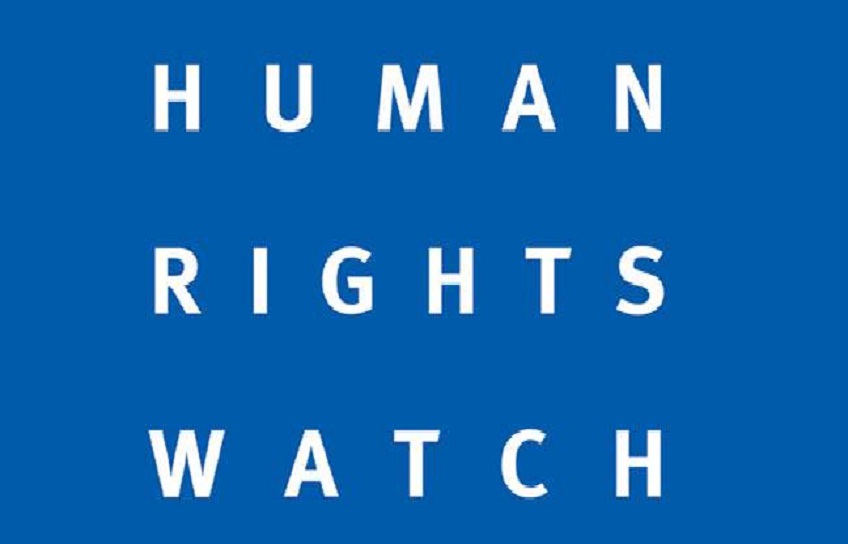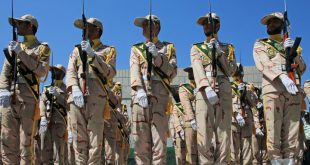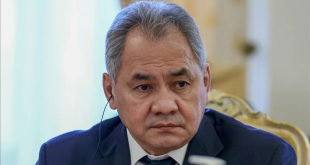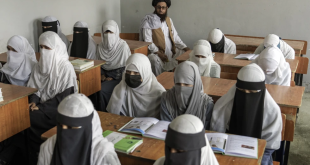KABUL: A US-based human rights group on Wednesday reiterated the need for a credible, independent and transparent investigation to ensure genuine accountability for the deadly airstrike on the MSF hospital.
Human Rights Watch (HRW) asked the US should establish an independent panel outside the military chain of command with the aim of establishing the facts and assessing possible culpability for the strike that killed at least 22 medical staff and patients.
A day earlier, Gen. John Campbell, commander of US forces in Afghanistan, told a Senate panel the decision to carry out the strike made within the US chain of command. He hoped the three investigations — conducted by NATO, the Department of Defense and the Afghan government — would bring the facts to light.
In a statement, HRW Asia Director Brad Adams said: “There’s no question deadly mistakes were made in the bombing of the MSF hospital. Now it’s the responsibility of the US government to take prompt action to fully compensate the victims of the attack and ensure full accountability…”
The group said the NATO-led coalition initially characterised the destruction to the hospital as “collateral damage” after a US airstrike was carried out “against insurgents who were directly firing upon US service members advising and assisting Afghan Security Forces” in the vicinity of the hospital.
On October 5, Campbell stated: “Afghan forces advised that they were taking fire from enemy positions and asked for air support from US forces,” appearing to shift responsibility for the airstrike to the Afghans.
For its part, the medical charity has consistently maintained there was no armed Taliban presence inside the hospital compound. American and Afghan officials were informed of the hospital’s coordinates well in advance.
Important facts about the airstrikes, including the nature of Taliban activity in the vicinity of the hospital at the time of the attack, had not yet come to light, HRW noted, saying the method of raid, the intended target, the number of strikes and what precautions were taken to minimise civilian harm also remained unclear.
Between 2006 and 2008, more than 550 Afghan civilians were killed in mistaken raids. In all of these cases, HRW found there were concerns as to whether the attacking forces acted in accordance with their obligation under the laws of war to exercise constant care to spare the civilian population and to take all feasible precautions to minimise loss of civilian life.
The group recommended adopting measures to reduce the likelihood of civilian casualties in TIC (Troop In Contact) situations:
Airstrikes should not be carried out without an adequate Collateral Damage Estimate (CDE);
Trained Joint Terminal Air Controllers (JTACs) should be involved in all TIC airstrikes, including those involving special forces;
There should be no strikes in densely populated areas unless the intelligence is highly reliable and the target has been visually identified;
Precision-guided low-collateral-damage munitions should be used whenever possible, especially on targets in populated areas;
Rules of engagement should be adopted by the US and NATO that are consistent to ensure that differences do not result in unnecessary civilian casualties;
JTAC training regarding civilian casualties and field CDEs should be improved; and
All strike aircraft should have low-collateral-damage bombs available at all times to minimize the potential for civilian casualties.
Campbell testified an AC-130 gunship was called in to carry out the strike. HRW called for any investigation to address key questions, such as:
Did the AC-130 have a JTAC member on board?
Did US forces fire based solely on intelligence from Afghan troops? Did the US identify and confirm the targets independently?
Did the AC-130 use weapons with a large blast and fragmentation radius, such as its 105mm howitzer? Explosive weapons with wide area effects are not appropriate for use in populated areas. Could weapons that presented a lower risk to civilians be reasonably used? (PAN)
 Afghanistan Times
Afghanistan Times




